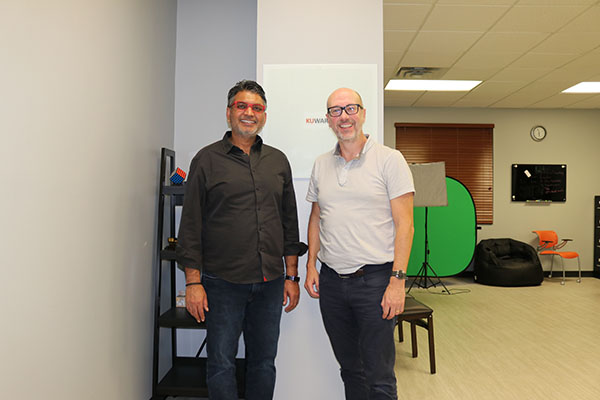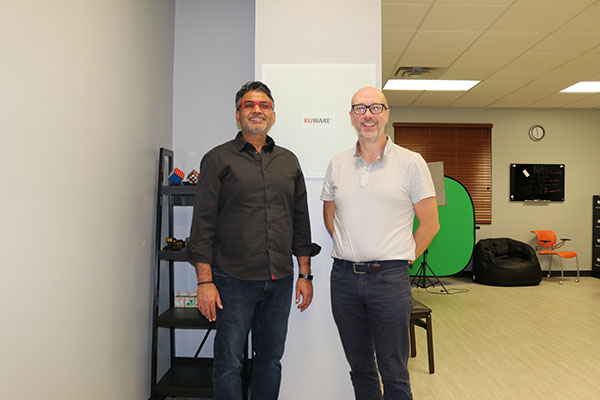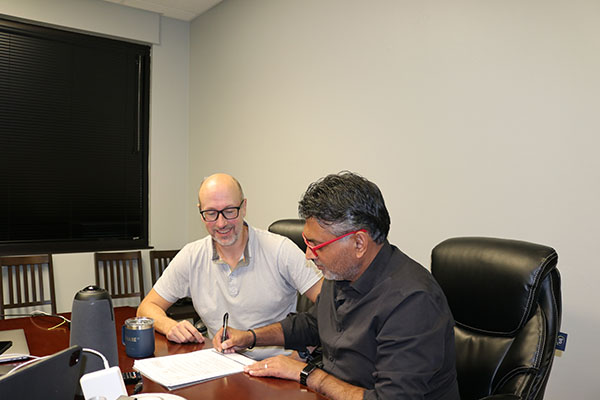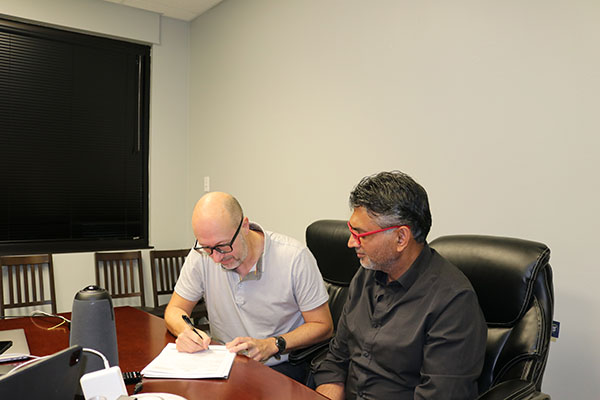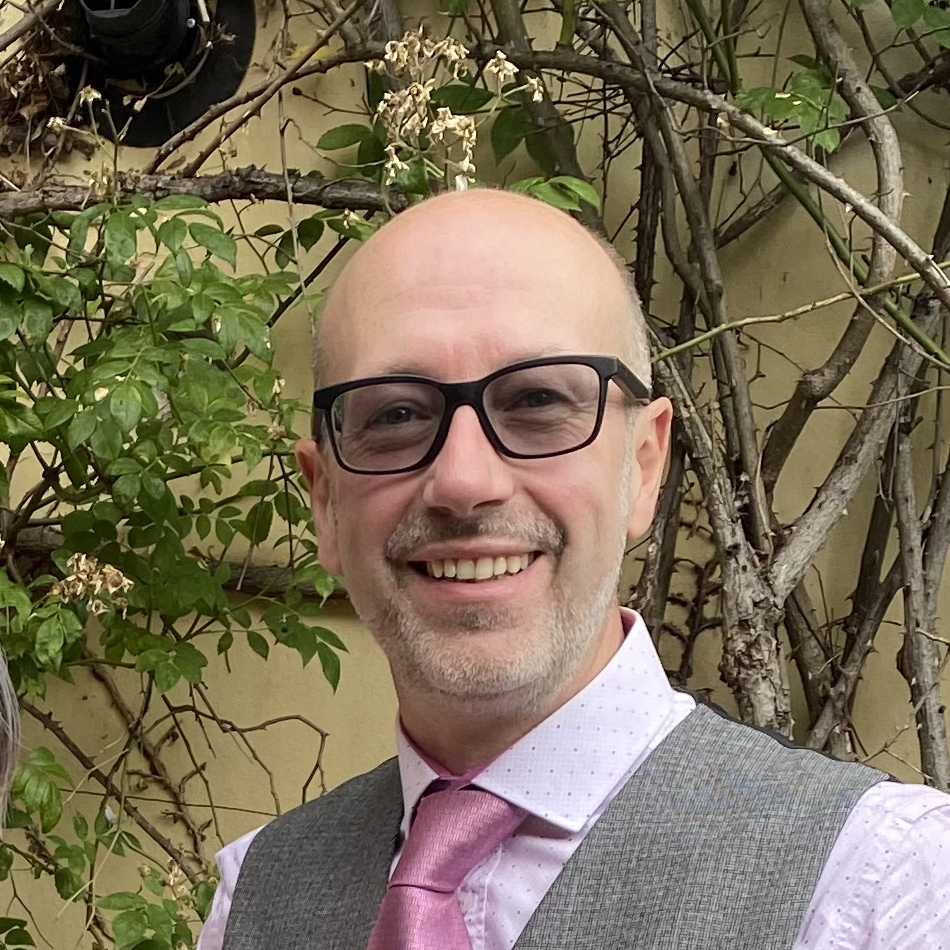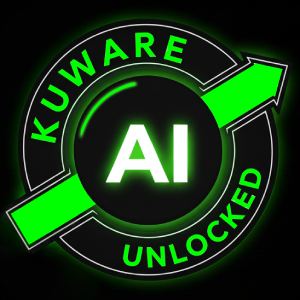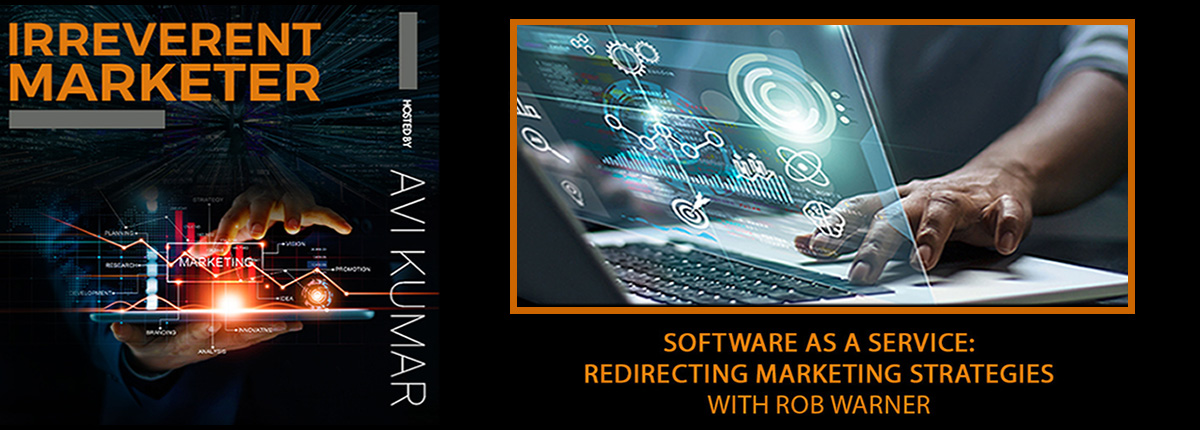After running a successful 7-figure Digital Marketing Agency for over 14 years, Avi was curious to buy more assets to augment his business, and there came Rob. Rob Warner, the founder of InvisiblePPC, a white-label Google PPC Agency, was looking for an exit from Agency Business to focus more on his SaaS platforms. Avi bought InvisiblePPC and officially took over in November 2021. This interview highlights the business interests and philosophy of both of these incredible business owners and gives us insight into running an Agency vs. a SaaS Business.
Rob, thanks for coming by to Austin.
I do appreciate it. You have shared that you have an accounting background. I want to start from there. Tell me your story.
I knew early on that I wanted to own my own business. I had a long belief, and potentially arrogant as a small child, that I was relatively smart. I did well at school. I felt like I knew stuff enough. I refused to work all my life for somebody else while they get fat and rich, and I stay as an employee. I don’t want to do that. I want my own business.
My dad was working as a sales exec for a multinational company. He got promoted from Managing Director to CEO and struggled with numbers. He said, “Rob, if you want to own your own business, make sure of your numbers. The best thing you can do is get an accounting experience. It will set you up for everything else you do afterwards.” Being the good obedient son, I went and got a job with a Big Four accounting firm. I passed my accounting qualifications and learned how to be an accountant.
I worked at KPMG. I stayed there long enough to get a certificate, and then I went out into the industry and worked as a CFO for a bunch of companies. The place where I work best was always the small to mid-sized companies. I didn’t want to be that faceless person in booth number 43 in a big company. That was not for me. The companies I worked with were doing $5 million to $20 million a year. I did that for a few years.
The problem is it traps you into a lifestyle. They pay you well. They give you nice cars and bonuses. It gets very comfortable. You have a family and they like this lifestyle. My wife and I had this conversation. I said, “The thing that I wanted to do, I’m going to do it. I’m going to go into software. I’ve got these business ideas. I want to build a software company.” My wife took an incredible credit. She said, “If that’s what you want to do, I trust you. Just don’t lose the house.” That was the instruction, “You can go and do it, just don’t lose the house.”
I set up a software company and we are doing okay. It was around 2010 after the banking crash that the world got a bit funky. We built software for business. Immediately, I had to pivot it to the government because the government suddenly was the only people spending money. All the businesses we were selling to were like, “We got nothing. We’re broke for the next period,” so we sold software to the government.
We were doing good by my standards. We’ve sold about a quarter of a million in orders as a startup. The word in the UK at the time was austerity. It was post-banking crash and the governments realized they had spent all this money in the banks and they had to tighten their budgets. I went away on vacation one day shortly after our general election in the UK. A new Prime Minister had been elected.
On day one, I got this email from one of my customers. The new orders were canceled. On day two, I got another one. By the end of the holiday, I had lost every single order in my backlog. The government departments all said, “We’re sorry, not only do we cancel the order. We are legally not allowed to buy anything from you for the foreseeable future.”
I now have a serious problem. We figured, “What can we do? How do we save ourselves?” We spent all our money. We made a commercial version of the stuff. We started as commercial, then went to the government. We flipped and made a commercial version. I went to see one of my last prospect standings, “I love what you’ve built, but it’s too complicated for me. I want the simple thing.”
We picked 2 or 3 Google Ads clients by accident and by word of mouth. I said to my wife one day, “That thing you said not to do about the house, I’m about six weeks away from doing it. Enjoy it while you can. It isn’t going to last very much longer.” A strange thing happened. That conversation and that level of honesty and opening up about how bad things are had allowed me to lean fully into Google Ads.
I started picking up clients. I picked up 1 and 2. Two things happened. Number one, I learned that the advice from my dad was terrible. I knew at some point in time precisely how much I didn’t have in terms of money. I could accurately tell you how much I owed, but I had no revenue. I had no sales skills so I had no means of getting new revenue in.
The advice should have been, “Go and sell some stuff. You can then count your money afterwards.” I didn’t know how to do it. I was a shy introverted accountant. Client number three found me because I was too frightened to do much of anything like outreach or cold calling. I would’ve preferred to lose the house than do a cold call. He said, “I work for a digital marketing agency. We do lots of SEO website builds, but we don’t do Google Ads. We’ve got lots of clients who want to do Google Ads. Why don’t you come down to our office? You can go through their accounts and review what they’re doing, good and bad. I’ll do the selling. You do the service delivery. We’ll split the money 50/50.”
What year was that when you had 3 or 4 clients already and you’re officially this new agency?
It was quite new at that time. You buy a product and they go, “Come and join our Facebook community group. You can ask questions there.” I was like, “That’s fantastic.” I joined a few of these and they’re all marketing groups. Whenever anybody asked a question about Google Ads in the marketing group, I’d give them the most helpful answer I could give.
I never pitched. I would say, “Here’s what you need to know and what you need to do.” I would then get a bunch of messages going, “Rob, that’s cool. Thanks for that. Could you do Google Ads for us? Do you work for agencies?” I’m like, “I do. I would love to help you.” This snowballed. Each time I’d answer a bunch of questions, I’d go to bed and wake up the following morning into a bunch of messages.
The interesting thing that I didn’t realize was these groups were generally for Americans. I’d wake up and get a bunch of new customers in America. That was a happy accident. That was good. I accidentally built a business that was growing to 20, 30, 45 clients, mainly overseas. I was handling all the work for myself and the fulfillment, and it grew.
I started hiring a project manager and somebody to help me run the Google Ads. As we went into 2013, I now thankfully have avoided losing my house. That was a good thing. My wife was happy. We had an income. We were living okay and paying down debts. There was an event being held in Denver, Colorado. I knew a bunch of my customers was going to be there. It was all about local marketing for businesses.
Sometimes there’s a moment that things change. On day one of the event, there were about 400 marketing agencies in the room. Mike gets on stage with his business partners and delivers the opening keynote and I’ll never forget it. It’s October 2013. He said, “The days of the generalist are gone. We’re in the era of the specialist. The best example I can give you is Rob and what he’s done with Google Ads and his white label Google Ads service. I think you’re in the room, Rob. Stand up and give everybody a wave.”
I crawl back into my Rob, being the shy and introverted accountant. I spent the next three days mobbed by people wanting Google Ads. The business exploded in that three-day period. There are still customers on the books that came from that event in 2013. That was the hooked moment. Suddenly, I’ve got American businesses that I didn’t mean to but I have.
Those two strange events that I didn’t particularly plan had a massive impact. Looking back, I reflect on it and it’s about putting yourself into places where things can happen. You’ve got to be there for that to happen. I could have easily stayed at home and not gone to that event. I couldn’t afford it but I was like, “I’m working with a guy halfway around the world and they could work locally.” They said, “Why don’t you go?”
In these two things, I had noticed that one, you’re doing something for yourself. You’re doing well. Others come to you. I’m sure a lot of agencies and a lot of businesses can relate to that. The second one, there is in-between stuff, which Gary Vaynerchuk keeps talking about all the time. You were sharing your knowledge and you were generally explaining, “Here’s the problem. This is how you solve it.” Probably a lot before Gary Vaynerchuk started saying it, it was a natural thing for you to share.
You’re an accountant. I’m an engineer. The way I would say it is that’s a knowledge worker’s way to sell.
That’s a far more generous way of describing it than I did.
You don’t know how to sell. All you know is to explain the knowledge you have. That’s what you’re doing. They come to you because they realize, “This person knows.” You leverage that. This event that happened seemed like an a-ha. Who was the event organizer?
You didn’t pay Mike anything. Did you start thinking, “There are many events like this? If I can show up there and have somebody stand up and call my name out, even if it is sponsored or somehow, that’ll be the way to grow?”
There’s part two to what happened to that event that ties into what you said. I knew Mike. I didn’t know the guys who were on the stage. It turns out there were 3 or 4 of them running this event jointly. One of them, Kevin, was promoting effectively a competitor service on stage or at least it felt that way to me. People were talking to me so I was busy. They were constantly approaching me.
This customer event was a spread. I’d expected to have about fifteen people with me showing the latest stuff in a room and a couple of PowerPoint slides. Suddenly, I got a room with about 50 people all coming to this event. I presented to those 50 people and it was great. They were buying and it was good. I just finished off and I was wrapping up towards a group of people. I saw Kevin walk in. I thought, “It’s interesting. He’s been promoting something onstage.”
He comes in and says, “What are you doing?” I said, “It’s a little customer thing. I’m showing some stuff that’s going on.” “It looks very much to me like you are running an unlicensed vendor event. You owe me $2,000.” The problem was I haven’t got $2,000. I am now in trouble with the event organizers. I said, “Mike said it was okay. It’s fine.” “It’s not the way it looks to me.” After a few minutes of this and he could probably see the terror on my face. He said, “I’m joking. It’s fine. Come with me. I want to introduce you to some people.”
What he did next was we agreed to create a training product together. Kevin introduced me to the world of webinars, selling information, training, software and services via webinars. We went from this world of inward people coming to us based on value to doing a joint venture webinar with 250 people on either end of a GoToWebinar line doing a structured sales presentation and pitch.
It was as alien to me as it could have possibly got. I thought I was going to have a heart attack the first time I did this thing, but it was highly profitable and lucrative. It cemented our name in that universe. At the time, we’ve done 10 or 15 joint ventures with other promoters. People knew who we were. It’s strange and that’s how we got. We didn’t go to a booth until 2014.
From there on, you started solving some of your problems by building your own software along the way, in-house. You felt either what you wanted do not exist or sometimes it was far too expensive to use a third-party software, especially when you have so many clients. For those two reasons, you started building that software. With that seed in your mind of like, “We need to build this,” how did that start?
I started this software before I became an accidental agency owner. I love building stuff. I was one of the kids at school who would be writing spreadsheets, writing spreadsheet macros, and automating stuff. That was what I grew up doing. A software solution was a natural thing to do partly. I don’t want to do repetitive and boring stuff. If I can find software stuff, I’m up for it all day. We built our first software in about 2015. It was called Boost by PPC, in which you could type in keywords and it would find the ads that were running. It would rate the ads and create a video review of the ads.
That was what we sold on webinars and it sold great. We ran that for about two years until Google changed the way it was running its search results and effectively broke the software. We couldn’t fix it. We had to shut it down. I stayed away from it for a couple of years until we hired an agency to build a dashboard for us in 2018. I had put a fortune on it and it never got to market. It spectacularly failed. We hired a reputable firm. In hindsight, we were sold on the workshop for a couple of days, scope it and spec it.
In reality, what happened was the budget kept growing and the project scope kept shrinking. There was less being delivered in each sprint to build the cycle. We lost $200,000 on that build that never saw the light of day. It’s heartbreaking. It took me about another twelve months to go back to it after that. By 2020, we started building again.
This time it’s your own agency and you directly manage the team.
We have a couple of outsourced teams because they’re overseas, but they work full-time for us. One of the things we found is working with agencies that have teams split between multiple projects didn’t work for us. We have dedicated people who finish deadlines, responsibilities and internal meetings. We treat them as employees, even though they’re not employees. That’s the close relationship we have. We find that works much better.
This is a selfish interest for me. I want to understand if we do the same model. With our team in India, we had some clients in the past who will take our dedicated developers. We still have an account manager on top in case there is a communication or deadline issue, but they will pay us monthly fees for those dedicated developers. Is that the same?
We have enough work for ourselves, so we don’t do that anymore. It was profitable for us, but that’s a great model for clients too because they get to know the person who’s always giving them the work and they can reach out and directly talk to them.
I’m not a big fan of a sample size of one. You don’t know what you’re getting. We’ve had several developers waiting for some time now. We get to see different performance and skill levels. We’re in a position where we go, “We need to replace that guy and bring in more.” We know what good looks like. As much of it is, what does good look like? What does a smart developer do and how is that different from a mediocre or a poor developer? We’ve found that understanding that over time has been powerful for us. We know that if we’ve got a big problem, we give it to that guy and we’ll get it same day solved more often than not. It gives massive confidence as you’re building things that you’ve got the right people in there to build it.
I’m going to take you to the next step. That’s the reason we got to know each other eventually. When did you start realizing that, “I’m back into my sweet spot? I’m doing software. Agency business is great, but I want to do this more.” When did that start hitting you?
It came down to a couple of things. I’m very conscious of when I say, “What’s next?” It sounds like I’m about to be negative towards my agency business and that’s not the case. I am proud of and enjoy the business that we built over a long period of time. With that said, agency is a messy business. It got lots of people and lots of moving parts.
I would describe myself as a creative introvert. That doesn’t play well in a people business. You don’t get into white labeling, a nerdy technical thing, because you want lots of people relationships. It’s not that I don’t like people’s relationships. I find them tiring. I find them hard work. There’s always this element of a business that grows through people, which I find quite emotionally tiring to run. I feel that I take personal responsibility for every single good or bad thing that happens.
That takes a toll over time, tiny little human errors. You might find this as well. When you are leading an organization, rarely do people bring you the good news. They’re bringing the brown sticky stuff. They’re bringing the problems. They’re bringing the bad things that have happened. You can sometimes end up with a negative worldview because the only client’s interactions you’ve had were with five people who’ve had problems.
You don’t hear the 95 who didn’t have problems. My psyche works very much on progression and forwards motion. Dealing with backward and negative stuff, I find it quite draining. If person X had a bad day, they made a mistake. The client is upset. That is resolved. Whereas if I build software, the software doesn’t have a bad day.
If there is something wrong, it’ll be wrong every day. You got to fix it.
That software is not going to have a bad day tomorrow because it’s random. One part of it was that sense of the people relationships can get quite physically, mentally and emotionally demanding for me and tiring. To be more commercial about it, agency businesses have value when you exit an agency business.
There’s a range of profit multiples of an agency business that are relatively small because they’re essentially busy and messy people businesses until you get to about $3 million per year EBIT, which we weren’t at. The multiples jump at that point. People you see doing roll-ups in agencies where you take five down to get $3 million. Instead of being maybe 2 to 4 times EBIT, you’re at 7 to 8 times. I get that.
The software business has a valuation typically based on revenue and that can be 5 to 10 times revenue or 15 times in some cases or even more. When I looked at the pure math of where I’m spending my effort. I’m getting to a certain age and I need to focus my effort on higher ROI activities. I said, “If I spend another 18 months or 2 years or 3 years of full effort building an agency, the best I can expect, let’s say it’s 4 times or 5 times my profit. If I spent eighteen months building software, I can expect ten times my revenue.
Purely from that perspective, it makes more sense for me, given that my background is software anyway, to focus on building software for a market that I already know and understand, which is the agency market. I know who these people are and their problems. I will build things at scale but I can solve those problems. That was the thing for me. It’s difficult to ride two horses. It was like trying to ride two horses and one was going faster than the other one. One is going faster and your legs get farther apart very quickly. It’s not fun. I had to make a decision and that decision was to exit the agency.
There are two parts here. One is I heard money and interest in software. The other one, you keep using the word introvert and from whatever I’ve known of you, you get along easily with people. I understand the selling part. I relate to that. Even there, you are talking to people. I don’t think you have any issue with that. It’s the selling sometimes. It’s more of the latter. Your logical brain is telling you, “I’ve got more multiples here. More is happening. I could do a lot more with this.”
You have the opportunity because you understand the market. It’s good to know. You talk about not wanting to deal with so many agencies, “I want to do this.” I hear you. Being the person who’s taking it over, I understand you have to be conscious of that. I’m very aware of that aspect of it and I face it day-to-day as we grow. That’s a challenge.
Did I avoid the question?
No, you got that but not in this talk. I said I’m going to ask you this. We are talking about this concept irreverent. That’s what I’ve gone with. In the early days of my life, I’ve gone with irreverence for the sake of irreverence. As I matured, I realized that’s stupid. You intentionally want to be counter to what is happening. That’s silly in its own right. Sometimes, I do it also for sake of being a contrarian. Many times, there are opportunities when irreverence gets you to the next level. You have examples of things you have done in your building business and career.
I’ll give you two that are related to InvisiblePPC and are very pertinent. The first one was I owned it as irreverent. At the time, it was practical. I took responsibility for it. When we first set up, I had less than no money. I need a website to have something to send people to because that’s the first thing people ask.
That was all we had on our website through InvisiblePPC. People said to me, “I’ve tried to check you out online, but I can’t find very much.” I’m like, “We are white label. We are behind the scenes. You are not supposed to be able to find much about us.” They go, “That’s clever.” I owned it. It was a completely practical thing that I couldn’t afford of doing. Once I’ve done it, I got a great reaction from it. I thought, “I’m not changing that. I’m sticking with this,” even when we could afford it, I left it where it was. It was a great talking point.
Fast forward a few years, we got invited into a program. Google has these secret programs of partnership. At the time, it was called Channel Sales. Because they could see our Google account growing, we got invited into the Channel Sales group. They’re the top 1% of agencies. As part of that, we got to know our Google team. We got access to Google resources and it was great. At that time, Google was heavily investing in agencies. We got fabulous support from them.
As the days towards this meeting came up, I could tell by the level of anxiety with our Google reps and their bosses who started appearing on our calls that this was a big thing. It came to about a week out from the meeting with Allan, our Google rep came on in a panic, “I need your help with something.” I said, “What’s up?” “I’m doing this research for the meeting. Could you please have a website because he can’t find anything about you and it looks embarrassing?” I said, “Okay.”
We built a website in a week purely because Google had asked us to do it so Allan could check us out and see who we were. I got on the call. This comes back to the second part of this thing. One of the things I find has served me best in marketing, which is unusual for people who don’t do it, is being almost overly truthful.
We got to this meeting with Allan and you can imagine, it was me and two of my colleagues. We’re all huddled around our laptops. Our faces are 6 inches from the screen because the webcams weren’t as quite as good. They’re in a conference room with a full-conference set up and about ten levels of management around the table. The meeting comes in. Allan comes in last, sits at the head of the table, and his very first question was, “Rob, what made you set up InvisiblePPC?”
I said, “We were founded on three core principles, cowardice, desperation and a lack of better alternatives. The whole room looked aghast at what I said, apart from Allan who practically fell off his chair laughing because people don’t speak to him like that. When I came out with this comment, which was absolutely true, it immediately set the tone. If you say something so embarrassingly honest to somebody, no matter what else you say after that, you’ve got a level of trust and relationship that you can build on. For me, that was so fun.
He knew right then that everything you are telling him can be trusted because you don’t care.
I can’t get any more embarrassed than that.
In the early days when we started, I was the only one. I was outsourcing to India. First, I’m of Indian origin. I’m already here. They could check my credentials. I went to school here and all. The line I started using is, “Most companies have this problem about too many chiefs and very few Indians. We don’t have that problem. I’m the only chief and there are a lot of Indians in this company. We are very effective in doing this work. ” We just played around it.
What you said is that what somebody else perceives to be a negative, by owning it and bringing it in that way, you turned it into an absolute advantage.
As we grew, we hired a lot of people in, but that’s what I did. It’s humor, at least. It gets people going. The thing which we did not get into, should we get into it or should we do a separate one where we talk especially about the tools?
Let’s do two separately. Even if we make it a separate session, I’d like to turn the tables a little bit. We know why I did Invisible. I’d like to know why you want Invisible. I want to have a conversation about that piece of it and your vision for the future.
We have done Google Ads on our own at different levels, at different times. We did manage at times budgets close to over $400,000 a month for a single company. We’ve done that level. It was great business because we were charging 15% of the ad spend. That improved everything. Having that one client was already great.
We had done that and we were doing that. One problem I always had was we did our job the best we could and I could never figure out, “Are we any good?” The reason being is we didn’t have that many clients to figure it out. It was only a few clients. If the client succeeds, I always had this mindset that sometimes the client succeeds in spite of the marketing.
You have a good product. People want to buy. Being of an engineering mindset, I want to know, “Is it what we did or they would sell anyway?” We put ads in there and they helped a little bit. Maybe we made it a little bit worse, but they were still selling. I was always very intrigued when I was part of this marketer partner program. I kept on asking partners.
I hired some people to do ads and audits for me. I was saying, “These people who have done hopefully more, know more. I want to see what they do.” Every time, I was disappointed because they were all small-level players. When I saw this agency and I knew there was this other agency in Austin, I said, “The people who must know this, they just do ads.”
That was my first interest when I heard about this opportunity. Moving on from this one, it was purely a technical interest in my mind. Initially, you might not have realized that it was not the numbers I was looking at. I was looking at, “What ads do they do? Are they any good? Do they have enough customers? Do they do enough kinds of ads? They must know quite a lot.” That was my personal interest more than anything else.
It’s an engineering interest.
I want to know that and that’ll be great because we can grow and I can build this. I always want the best optimal solution for our clients. For PPC, we will have the optimal solution. That was my interest initially. The things I kept on asking is, “Who does that? Do they know it? Who’s their team? Do they know this stuff or not or it’s a test?” There are enough marketing agencies. They do grow big but don’t know enough.
I agree. You come across a lot of them.
I went and saw you talk. You were talking about your tools and other things. I said, “If Rob is the founder and he’s talking about the tools and the stuff with a passion, he knows this stuff. This is not something, ‘I just got it.’ He knows that so I don’t have to worry. If he’s the founder, it means the team knows how to do this.” That was my first thing. It was the same reason you were able to sell. That’s the part we are on a parallel that I tried to see. There’s a phrase that says, “At the end of the day, competence is all that matters.”
It’s a little bit of a philosophical approach that we keep talking about, “We need to be human. We need to be nice. We need to be sharing.” You can do all that, but if you are not competent, nothing else matters.” That is what I was looking for. When I saw that, I said, “They are a competent company. They are doing well.”
They know quite a few things which I have learned about selling and marketing as an agency. We can leverage that and grow this. That was the reason I felt it was a great match for us to take on. I see this as something I want to double, triple or more and build it bigger because competence is there. It already works. There are opportunities and other markets to go to.
The other aspect and the reason I saw that InvisiblePPC would be great is the people who have gotten on board in helping me grow our business have a lot of experience with agencies. I said, “It’s not the end customers. They know a lot about agency business.” This means we can work with lot more agencies to do white labeling. That’s another reason I felt we are placed right to take this and grow this business. That was my reason. Initially, it was technical, then I saw a business opportunity.
I’m sure that’s the minimum that’s expected of anybody. Care about what you do and do it to the best of your abilities. It seems like that’s not a popular opinion. I took it for granted and you’re right. If you put your time, your skills and do the right thing, it’s amazing how often that sets you apart. I think you’re right. With your background, your agencies and the range of service experience that your career has gone, Invisible can do things under your leadership. I’m super excited about that.
This has been my baby for many years. It’s been part of my identity for the last ten years. You want your baby to go to a good home. You want it to be well looked after, grown and nurtured. I still want to be proud of it in ten years even if I don’t own it. I would still hope we can be talking about it. I’m proud of what it’s become. I want to be in the crowd being its biggest cheerleader. Finding the person with the same mindset and you mix the engineering approach, the desire to build is what it’s all about.
It’s going to be a good journey.
It’s a huge win for our business.
I will tell you upfront that I’m jealous of you about the SaaS business. We have been talking about SaaS, not in your space, for a long time, in-house. We just never got around it for the same reasons. In our case, we keep getting other businesses. Who has time to do the SaaS? We have this lab works. Don’t be surprised that 2 or 3 years from now, it would be a completely different area. We are talking more about SaaS.
That’s fine. I can nerd out on that stuff all day long. If you want to nerd out, be it SaaS, be it Google Ads, we can do that anytime. It’s even better if there’s a red wine involved.
Thank you very much. I appreciate the time. Maybe we’ll make that part two. What do you say? You don’t want a meeting or a visit wasted. You want to make money out of it. Maybe something will come out of this.
Thank you so much. I appreciate it.
